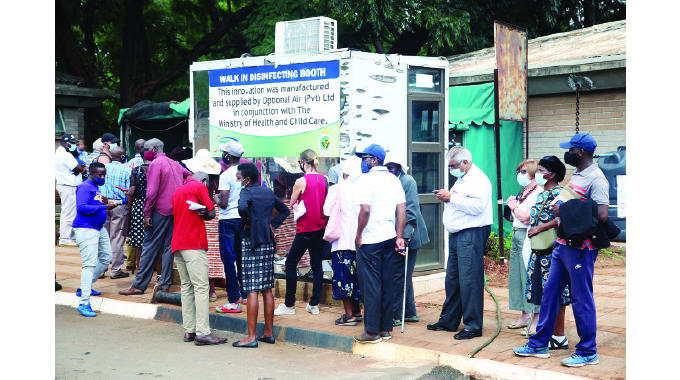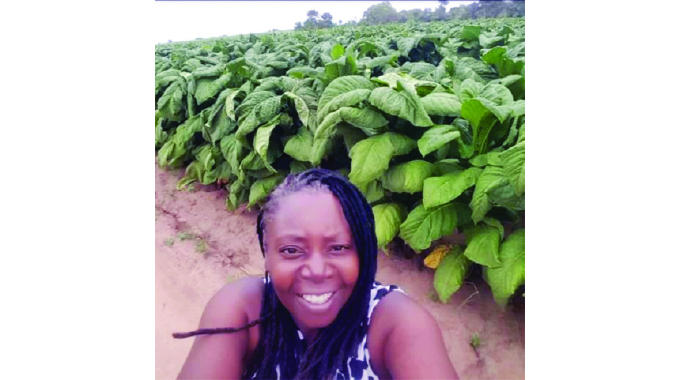Medical experts should help demystify vaccine apathy

Ruth Butaumocho
African Agenda
UNSETTLING reports of the resurgence of the Covid-19 pandemic are emerging across the world where thousands are now succumbing to the pandemic.
A third wave of Covid-19 is advancing swiftly across Europe with countries like Italy, France and Germany reporting five digit figures of new infections on a daily basis.
Elsewhere, other countries are also under siege from new infections, forcing many to reintroduce lockdown restrictions as they battle to contain the latest development.
The coronavirus which appeared to have retreated is rising even in some parts of Asia, where India is reporting an average of 31 000 cases daily from as low as 9 000 a month ago.
With the third wave wreaking havoc in Europe, fears are abound that the third wave will heavily impact several African countries that are already battling to secure vaccines for their people.
Vaccinations have begun in earnest in several countries.
Frontline workers are being given priority before moving to other vulnerable people, under different vaccination programmes which will eventually be rolled out to everyone.
In Zimbabwe, the vaccination programme has moved a gear up after President Mnangagwa yesterday launched the second stage of the campaign, which will target community leaders among them the clergy, teachers and the judiciary.
The second phase is expected to vaccinate more people against the virus, a development which should ultimately result in a decline in new infections.
Suffice to say, despite warnings of a third wave is set to sweep across the continent, there seems to be reluctance by some people to be vaccinated against the virus, which is becoming virulent with each day.
With knowledge of Covid-19 less than a year old, treatment remains fraught with uncertainty, a development that has seen a low uptake of the Covid-19 vaccine, being given for free in several countries, Zimbabwe included.
Vaccine hesitancy remains a legacy concern that governments and health personnel need to take head on to ensure they reach herd immunity which is crucial against further spread of the virus.
Reasons differ, with religion and the safety issues being cited as the major concerns why many have not yet opted to be vaccinated against the virus.
Some of the reasons being given by some sections of society are already fuelling concerns that the coronavirus could continue to disproportionally affect some communities, prompting calls for Government to action and the inclusion of medical personnel to take an active role.
The juncture that Zimbabwe and the globe finds itself in dealing with vaccine hesitancy now requires health personnel such as doctors to step up and become the face of Covid-19.
By its nature, the medical field is a highly sophisticated area that borders on matters of life and health.
Trust then becomes a fundamental aspect of the patient-doctor relationship to sustain and preserve life whenever possible.
It is that trust that people have that forces even highly-educated and knowledgeable patients to rely on their doctors to provide them with appropriate information on health matters.
As a result, patients will naturally take medication prescribed by their physicians on the understanding that the dosage will heal them and preserve their lives.
The introduction of Covid-19 vaccines have laid bare the health disparities and mistrust that people have on any new medical innovation to curb the spread of an infection.
The Covid-19 era that the whole world finds itself in, has given an impetus on the role of physicians to unpack information relating to the virus and on what millions of people need to know as part of the many preventative measures.
While information has been trickling in, considering that it is a novel virus continuously under research, there still remains a yawning gap on the nexus between the virus and the vaccines, an information gap that medical practitioners would need to fill by explaining the importance of vaccines in further reducing new cases.
Doctors and health personnel now need to add their voice in the fight against Covid-19, by fronting awareness campaigns on the importance and efficacy of Covid-19 vaccines.
Boasting their expertise in the medical field, physicians are better placed to explain the consequential effects that the world find itself in, if no necessary measures are taken to prevent the further spread of the diseases.
Currently outside the World Health Organisation prescribed regulations, such as social distancing, masking up and practicing good hygiene, vaccinating the people against Covid-19 remains one of the key strategies in reducing new infections and therefore cannot be put in the hands of soothsayers and prophets.
With so much falsehoods being peddled on the Internet, physicians should step in and play a crucial role in dissemination the right information to a population that is now beyond itself with fear and trauma of losing loved ones to Covid-19.
They should do more by providing accurate information, based upon facts.
Physicians should go a step further and also fashion messages that are culturally appropriate and reach out to the people that need the vaccination the most.
The clergy are also better placed to disseminate message of hope and the importance of the jab to its legions of followers who are seized with fear and uncertainty.
Sadly some men of the cloth have not done well in encouraging their followers to take the Covid-19 jabs. They have instead instilled fear in the very same people being encouraged to be vaccinated against the pandemic to stop further loss of lives.
With a third wave, already ripping several countries apart vaccination becomes key and one of the best strategies to get people out of the crisis the globe is faced with.
The medical personnel should step and affirm the importance of the vaccine, without batting an eye lid, and save millions currently faced with demise of Covid-19.









Comments